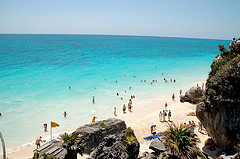 News of death – especially deaths that occur on vacations – are sensational. Like the 26-year old U.S. tourist who died on a Bahama cruise or the three skiers recently killed in a Washington avalanche.
News of death – especially deaths that occur on vacations – are sensational. Like the 26-year old U.S. tourist who died on a Bahama cruise or the three skiers recently killed in a Washington avalanche.
Whether a traveler is traveling solo, with friends, or with family, it’s important to remember that if a death occurs on any trip, your body isn’t automatically shipped back home for burial. In fact, it’s stored in the local morgue and local laws govern how long it can wait before being collected. Transporting a body can take a lot of money and coordination to properly prepare and ship it back home.
One travel insurance coverage no traveler should leave home without is repatriation. Often lumped together with medical evacuation coverage, repatriation is a fancy word arranging for and transporting a covered person’s body to his or her home or to a nearby funeral or cremation facility. Having this benefit with your travel insurance plan means your family won’t have to pay for the unexpected costs related to collecting and shipping your body home for burial.
Each country has their own laws and regulations governing how a body can be transported. Many require a good deal of paperwork – paperwork and coordination that must occur in the local language.
Even if you are traveling with family members, they won’t have to navigate the complications of transporting your body home. With repatriation coverage included in your travel insurance plan, you’ll have assistance services representatives to coordinate and manage this responsibility. Similar to life insurance that leaves those depending on you a little safer financially should you die, repatriation insurance ensures that they’ll have the help they need to coordinate your body’s return home if you die on a trip.







